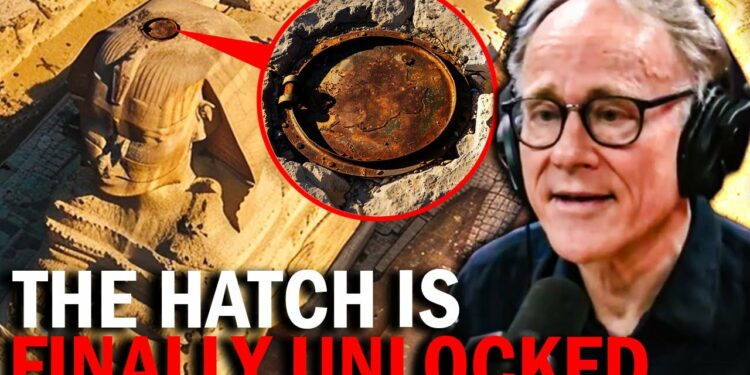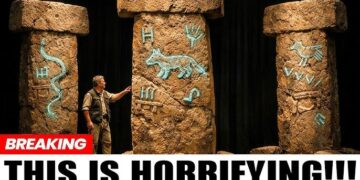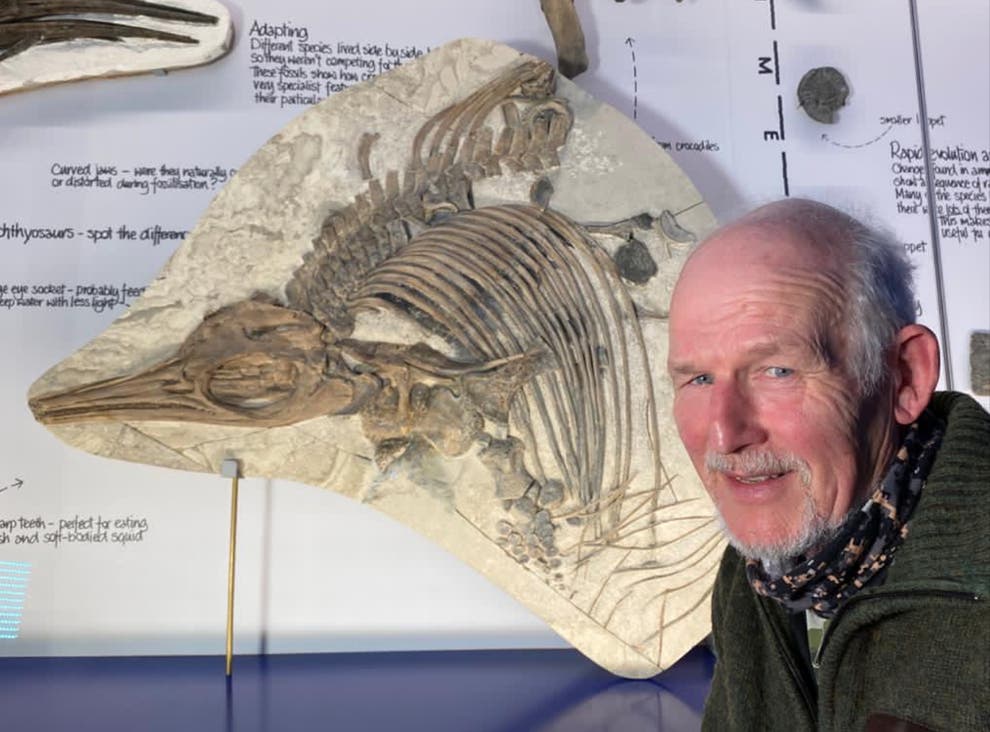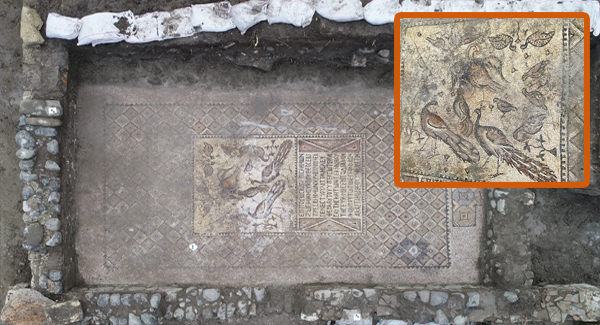The Great Sphinx, standing amidst Egypt’s timeless sands, is a mystery as old as civilization itself. For years, this ancient marvel has captivated archaeologists and historians. Recent scientific breakthroughs have begun to unravel the long-hidden secrets of the Great Sphinx, raising questions that could rewrite history. Join us as we explore the unknown, delving into the mysteries of Egypt’s iconic monument.
Hidden Passages and Forbidden Tunnels
The Sphinx has long sparked debate and speculation, with legends of hidden tunnels and chambers beneath it. Modern studies, including ground radar, suggest possible undiscovered spaces within the monument. A particularly intriguing discovery is a forbidden passage at the Sphinx’s rear, first uncovered by renowned Egyptologists Zahi Hawass and Mark Lehner. An old worker’s tale of a secret tunnel near the Sphinx’s tail led to the removal of a single stone, revealing a descending passage. For three weeks, researchers explored this dark shaft but found nothing, documenting their efforts in a 16-page report with limited photos, mostly of the entrance and exterior.
Despite this, unauthorized explorers risked capture to photograph a previously unknown ascending tunnel within the Sphinx, boarded up and hidden from view. This eastward-leading passage aligns with radar-detected cavities, suggesting more secrets await. While the tunnel may be a dead end, these findings challenge claims of no hidden spaces beneath the Sphinx, opening a new chapter in its mystery.
Unveiling Ancient Mysteries: The Osiris Shaft
The Osiris Shaft, located in the causeway linking the Sphinx to the Second Pyramid, is a marvel of ancient engineering. This three-level structure, carved into solid bedrock, showcases the Egyptians’ remarkable craftsmanship. The first level features a rectangular opening leading to a 10-meter vertical shaft, likely used for preparatory rituals. The second level descends another 20 meters to a more intricate chamber, possibly linked to burial practices or symbolic journeys to the afterlife. At the third level, 30 meters underground, a stone sarcophagus rests in a partially submerged chamber, evoking the mythical tomb of Osiris, the god of the afterlife, death, and rebirth.
The shaft’s design, with its water-filled lower level, reflects Egyptian themes of rebirth and purification. Six empty burial shafts on this level raise questions—were they looted or intentionally left vacant? Pottery shards and stone vessel fragments suggest the shaft dates to the New Kingdom period, while mummified remains in smaller chambers offer a glimpse into ancient lives, diets, and deaths. The shaft’s alignment with celestial bodies and its resonance with texts like the Pyramid Texts and the Book of the Dead suggest it was a physical representation of the Egyptian afterlife, possibly used for initiation rituals mimicking Osiris’s journey of death and resurrection.
Evolution of the Osiris Shaft
The Osiris Shaft has two entrances: one to the south and one to the north. Photos from a 2011 expedition show the northern entrance as a weathered, 6-foot-tall hole in the bedrock, with a secondary eroded tunnel nearby. Today, this entrance is largely sealed with a concrete wall and covered with sand, obscuring it from public view. The secondary tunnel has also been filled in. These changes suggest an intentional effort to restrict access, supporting the idea that the shaft was not meant for regular entry. The use of massive granite sarcophagi, weighing around 40 tons and made from different stone than the shaft, raises further questions. Why transport such heavy objects underground instead of carving chambers directly? The absence of inscriptions and the logistical challenges of lowering these sarcophagi hint at a deeper purpose.
A black stone sarcophagus on the second level, coated with bitumen, reveals a metallic layer of lead, zinc, iron, titanium, and arsenic underneath. Its purpose remains unclear, adding to the shaft’s enigma.
The Diabase Sarcophagus Mystery
The most intriguing object in the Osiris Shaft is a massive gray sarcophagus on the north wall, made of diabase—an unprecedented material in ancient Egyptian artifacts. Geologists note that no diabase deposits in Africa could produce a sarcophagus of this size, suggesting it was imported, possibly from Europe or the Black Sea, at immense cost and effort. Transporting a 40-ton block across deserts without a direct water route to Giza raises questions: Why choose diabase over local granite or basalt, and why was this not repeated in Egyptian history?
Dating using optical thermoluminescence, a technique measuring the last exposure of stone to sunlight, places the sarcophagus in pre-dynastic times, around 3350 BC—850 years before the Giza Pyramids’ accepted construction during the Old Kingdom. This method, developed by Professor Ioannis Liritzis, analyzes electrons trapped in granite crystals to determine age, revealing the sarcophagus’s extreme antiquity and challenging conventional timelines.
A Quest Through History: Graham Hancock’s Theories
Graham Hancock, known for books like Fingerprints of the Gods, proposes that the Osiris Shaft is a relic of a lost advanced civilization with global reach. He suggests this civilization, predating known societies like the Egyptians, possessed advanced architectural and mathematical knowledge. The shaft’s intricate design and possible celestial alignments with Osiris-related constellations support his theory of a society with sophisticated technology and spiritual beliefs. Hancock links the shaft’s water-filled lower levels to ancient flood myths, possibly caused by comet impacts 12,800–11,600 years ago during the Younger Dryas, which he believes destroyed this civilization. Survivors, he argues, spread their knowledge, influencing cultures worldwide.
The Sphinx’s Age: Robert Schoch’s Theory
Geologist Robert Schoch’s 1990s theory challenges the Sphinx’s accepted age of 4,500 years (circa 2500 BC). He observed water erosion patterns on the Sphinx and its enclosure, inconsistent with desert wind and sand abrasion but suggestive of heavy rainfall. This points to a construction date during the Neolithic Subpluvial (10,000–5,000 BC), when Egypt was wetter. Supported by John Anthony West and Graham Hancock, this theory implies the Sphinx predates the Fourth Dynasty, possibly originating in a far older era. The Sphinx’s head, disproportionately small compared to its body, may have been recarved from an eroded lion head into a pharaoh’s, as Schoch suggests, aligning with Egypt’s wetter past.
A Breakthrough Discovery
Recently, a team led by a renowned archaeologist opened a hidden hatch atop the Sphinx’s head, revealing a narrow staircase descending into a chamber adorned with hieroglyphs. At its center lay a golden amulet etched with pulsing symbols, a find that captivated the world. Headlines proclaimed, “Scientists Finally Open Secret Hatch on Egypt’s Ancient Sphinx,” signaling a discovery that could reshape history.
Extensive Underground Tunnels
The Osiris Shaft’s third level hints at a network of unexcavated tunnels beneath the Giza Plateau, possibly connecting to other subterranean complexes. Tunnels at sites like Tuna el-Gabel (3 km) and the Step Pyramid (56 km if laid flat) suggest an extensive underground system. Water at the shaft’s base, aligned with the Nile’s water table, indicates these tunnels may have been designed for water management rather than travel. Ongoing water-pumping efforts since 2012 highlight the challenges of exploring these flooded passages.
Echoes of a Lost Civilization
Hancock’s theories envision a global advanced civilization erased by cataclysmic floods, with survivors seeding cultures like Egypt’s. He views flood myths as historical records of real events, possibly triggered by comet impacts disrupting the Gulf Stream. Ancient structures like the Giza Pyramids, Stonehenge, and Puma Punku in Bolivia showcase precise engineering, suggesting advanced tools, leverage systems, and knowledge of the golden ratio and geometry. The Giza Pyramids’ alignment with Orion’s Belt and the Sphinx’s with Leo around 10,000 BC indicate a deep understanding of precession, a 26,000-year astronomical cycle. Hancock’s work invites us to reconsider human history, with the Osiris Shaft and Sphinx as potential relics of this lost civilization’s legacy.
What do you think about the origins of the Sphinx’s architectural skills? Share your thoughts in the comments below.





















